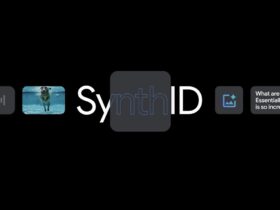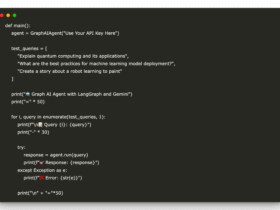In 2025, the world of AI legislation is changing fast. This affects businesses all over the globe. New laws in the U.S. and the EU’s AI Act are making big waves.
It’s important for companies to get these changes. They need to understand the rules and avoid risks. We’ll look into what these laws mean for businesses moving forward.
Key Takeaways
- New state laws in the U.S. are set to impact AI regulation.
- The EU AI Act’s key provisions are taking effect, shaping the global AI landscape.
- Enterprises must prioritize compliance to avoid possible risks.
- Understanding these changes is key for businesses to adapt.
- The future of AI regulation will be influenced by these updates.
The Changing Landscape of AI Regulation
As we approach 2025, the world of AI regulation is changing fast. The U.S. is seeing a lot of new laws about AI. Both the federal and state governments are working hard to shape the future of AI regulations and artificial intelligence policy.
Key Shifts in Federal and State Approaches
There’s a big change towards better AI rules at both federal and state levels. For example, California will start enforcing three big AI laws in 2025. These laws will affect how AI handles personal info, healthcare services, and healthcare facilities.
This shows that state-level regulations are getting more important. Other states like New York and Texas are also making their own AI laws.
Why 2025 Marks a Critical Turning Point
The year 2025 is key because it’s when many important AI laws will start being enforced. These laws aim to tackle big issues like data privacy and making sure AI is fair. Businesses will need to follow these new rules closely.
2025 will be a big year for AI rules, affecting both businesses and people. It’s important to keep up with these changes in the fast-moving world of AI.
Major AI Legislation Taking Effect in 2025
As 2025 begins, the U.S. is ready to enter a new era in AI governance. This is thanks to landmark laws that aim to balance innovation with safety. The Federal AI Safety and Innovation Act is a key piece of legislation.
The Federal AI Safety and Innovation Act
This act takes a broad approach to regulating AI. It focuses on safety, transparency, and innovation. It sets new standards for AI development and deployment, making sure technologies are advanced and responsible.
Enforcement Timeline and Authority
The enforcement of the Federal AI Safety and Innovation Act will start slowly. There are key milestones to watch:
- Initial compliance assessments within the first six months of 2025
- Full enforcement by the end of 2025
- Ongoing monitoring and evaluation by the newly established AI Regulatory Authority
Penalties for Non-Compliance
Significant penalties will be given to those who don’t follow the new rules. The penalty structure is as follows:
| Violation Severity | First-Time Penalty | Repeat Offense Penalty |
|---|---|---|
| Minor | $50,000 | $100,000 |
| Moderate | $200,000 | $500,000 |
| Severe | $1,000,000 | Potential suspension of AI operations |
It’s important for businesses to understand these regulations and prepare for compliance. This will help them successfully navigate the evolving AI landscape.
State-Level AI Laws and Their Implications
As we explore the world of AI rules, it’s key to look at state laws. Many states are making their own rules for AI. This shows their own special needs and worries.
California’s AI Consumer Protection Law
California has a law called the AI Consumer Protection Law. It aims to keep consumers safe from AI dangers. This law mandates transparency in AI choices and boosts consumer rights in AI data use.
New York’s Algorithmic Accountability Act
New York’s law, the Algorithmic Accountability Act, focuses on making AI systems accountable and clear. It demands companies to check their AI systems often. This is to spot any biases or dangers.
Texas and Florida’s Different Ways
Texas and Florida have different views on AI rules. Texas wants to encourage innovation with laws that help AI grow. Florida, on the other hand, is more about protecting consumers. It has strict rules for AI in areas like healthcare.
The different ways states handle AI rules show how complex it is in the U.S. Companies working in many states must adjust to these rules. They need to make sure their AI practices fit each state’s laws.
International AI Regulations Affecting US Businesses
US companies are entering a new era of AI rules. These rules will change how they work around the world. It’s key for them to follow these rules to stay ahead and avoid fines.
EU AI Act Implementation Requirements
The European Union’s AI Act is a big deal for US businesses in the EU. They must:
- Do detailed risk checks for AI systems
- Make sure AI decisions are clear and open
- Follow strict data rules and quality control
US companies need to change their AI plans to meet these rules. This might affect how they use AI worldwide.

China’s AI Governance Framework
China has a detailed AI rule set for US businesses there. This includes:
- Rules on keeping data in China
- Steps to get approval for AI algorithms
- Need for real names for AI services
US companies must know these rules to work well in China’s AI market.
Cross-Border Compliance Challenges
Dealing with rules in different places is hard for US businesses. They face:
| Jurisdiction | Key Regulatory Focus | Compliance Challenge |
|---|---|---|
| EU | Risk assessment, transparency | Adapting to strict AI Act rules |
| China | Data localization, algorithmic filing | Dealing with a complex set of rules |
To tackle these issues, US businesses need a single global AI compliance plan. They should use their AI policy knowledge to get through the international rules maze.
Industry-Specific AI Legislation
AI is spreading across many industries, leading to new laws for each sector. In 2025, we see a big change. Laws now focus on the unique needs and risks of each field.
Healthcare AI Regulatory Framework
The healthcare world faces strict rules to keep patients safe and protect their data. A new Healthcare AI Regulatory Framework sets rules for AI in hospitals. AI tools for diagnosis must be tested well to be trusted.
Experts say AI in healthcare needs to be safe and innovative. You can learn more about AI in healthcare here: in-depth analysis.
Financial Services AI Compliance Standards
AI rules in finance are getting tighter to handle risks like algorithm trading and anti-money laundering. New rules require banks to have clear AI rules. This ensures AI decisions are fair and open.
“AI can change finance for the better, but it must be used wisely,” a report says.
Transportation and Autonomous Systems Rules
The rise of self-driving cars is leading to new rules in transport. Laws now cover how to make, test, and use these cars. They focus on safety and trust.
These rules help balance new tech with keeping everyone safe on the roads.
In summary, 2025’s AI laws show the different challenges and chances AI brings to various fields. By following these rules, companies can use AI’s power safely and wisely.
Key Stakeholder Reactions to New AI Legislation
The new AI laws have caused different reactions from key groups. It’s important to understand what each group thinks.
Tech Industry Response
The tech world has mixed feelings about the new AI laws. Some companies see them as a chance for innovation and clarity. Others worry about the extra rules.
Big tech firms are cautiously optimistic. They see both the hurdles and the chances in these new rules.
Consumer Advocacy Perspectives
Groups that look out for consumers want strong AI laws. They say these laws are key to keeping people safe. They push for transparency and accountability in AI.
They believe good laws will stop AI misuse. And they’ll make sure tech is made with people’s best interests in mind.
Academic and Research Community Feedback
Experts in AI and research have shared their thoughts on the new laws. They see both good and bad sides of these rules. They’re curious about how they’ll affect AI growth.
Some experts see a chance to make AI better and more responsible. They think these laws could help AI grow in a good way.
| Stakeholder Group | Key Concerns | Positive Aspects Highlighted |
|---|---|---|
| Tech Industry | Regulatory burden, possible slowdown of innovation | Clear rules for AI, chance for safer tech |
| Consumer Advocacy Groups | Need for stronger consumer protections | More openness and responsibility in AI |
| Academic and Research Community | How the laws will affect AI research | Opportunities for better AI development |
The mixed reactions to the AI laws show the challenge of finding the right balance. As we go forward, we must listen to all views. This way, AI can help everyone.
How These AI Laws Will Impact You
New AI laws in 2025 will change a lot for both consumers and businesses. It’s key to know how these changes will affect our daily use of AI. This includes how we interact with AI services and products.
New Consumer Rights and Protections
The new AI laws will bring big changes for consumer rights and protections. For example, people will have more control over their data. They can choose not to share certain data and demand clear AI decision-making.
Changes to AI-Powered Services and Products
AI services and products will see big changes to follow the new laws. Companies will have to make their AI systems more open and fair. This might change how these services are made and given to us.
Privacy and Data Ownership Implications
The new laws will also affect privacy and data ownership a lot. Businesses will have to change how they handle data to follow the rules. This could lead to better data management that puts privacy first.
| Area of Impact | Description of Change | Expected Outcome |
|---|---|---|
| Consumer Rights | Greater control over personal data | Enhanced privacy and transparency |
| AI-Powered Services | Adaptation to new compliance standards | Fairer and more transparent AI systems |
| Data Ownership | Stricter data collection and usage regulations | Improved data security and privacy |
Conclusion: Preparing for the New Era of AI Governance
2025 is a big year for artificial intelligence policy. Companies need to set up strong yet flexible rules to follow new laws.
Many AI laws are coming into effect, like the Federal AI Safety and Innovation Act. States like California, New York, Texas, and Florida are also making their own rules. The EU AI Act affects US businesses that work worldwide.
Businesses can use tools like Credo AI to manage AI well. This helps make sure AI is used for good and not harm. It’s all about being open, responsible, and following the rules.
We must keep up with changes in AI policy and update our rules. This way, we can use AI to its fullest while keeping our digital world trustworthy and honest.













Leave a Reply